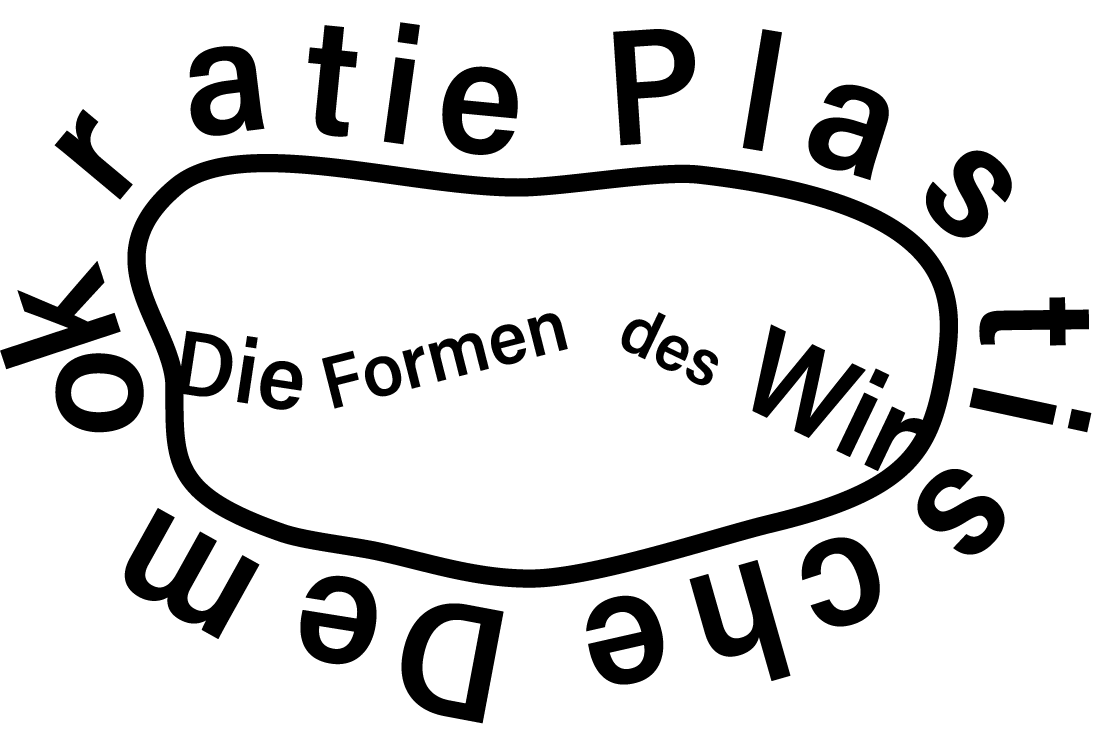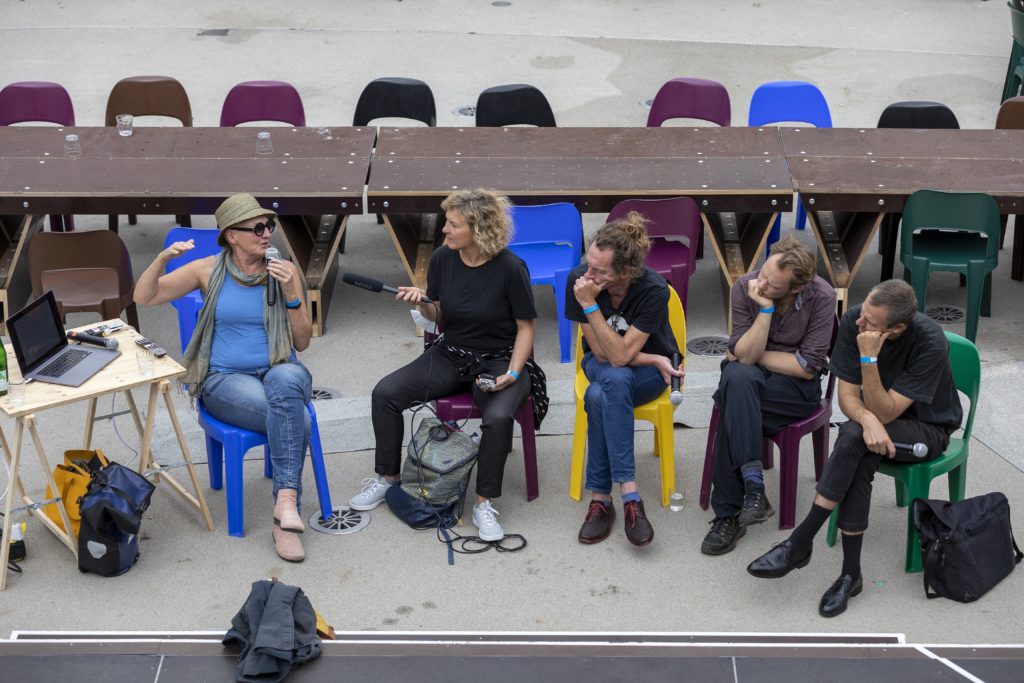
Discussion
This Open Space was about strategies of self-assertion in a time when public spaces are experiencing a hitherto unknown form of commercialisation.
This concerns both established urban infrastructures such as parks, local transport places, streets and paths, but also informal spaces used as urban meeting places, unofficial sports facilities or creative hiding places.
In the end, the question is: How much free space does our city actually still offer? Here, »Freiraum« stands for »free space«, i.e. places of possibility where capital has not yet taken hold.
The panel explored this question with its guests and the audience using the example of concrete projects, buildings and initiatives in Düsseldorf. The Open Space focused on places such as the Centre for Periphery, the Film Workshop, various garden projects or the Planwerkstatt 378. The focus was on models of self-organisation and co-determination and the question of what significance these places have for the common good.
With Ute Reeh (Zentrum für Peripherie), Moritz Fiedler (artist), Jan Wagner (Filmwerkstatt), Harald Schwenk (Planwerkstatt 378), Ela Kagel (Supermarkt Berlin), Kathrin Tiedemann (FFT Düsseldorf).

Ute Reeh, in conversation with Ela Kagel as well as Harald Schwenk, Moritz Fiedler and Jan Wagner (from left to right), Photo: Rainer Schlautmann